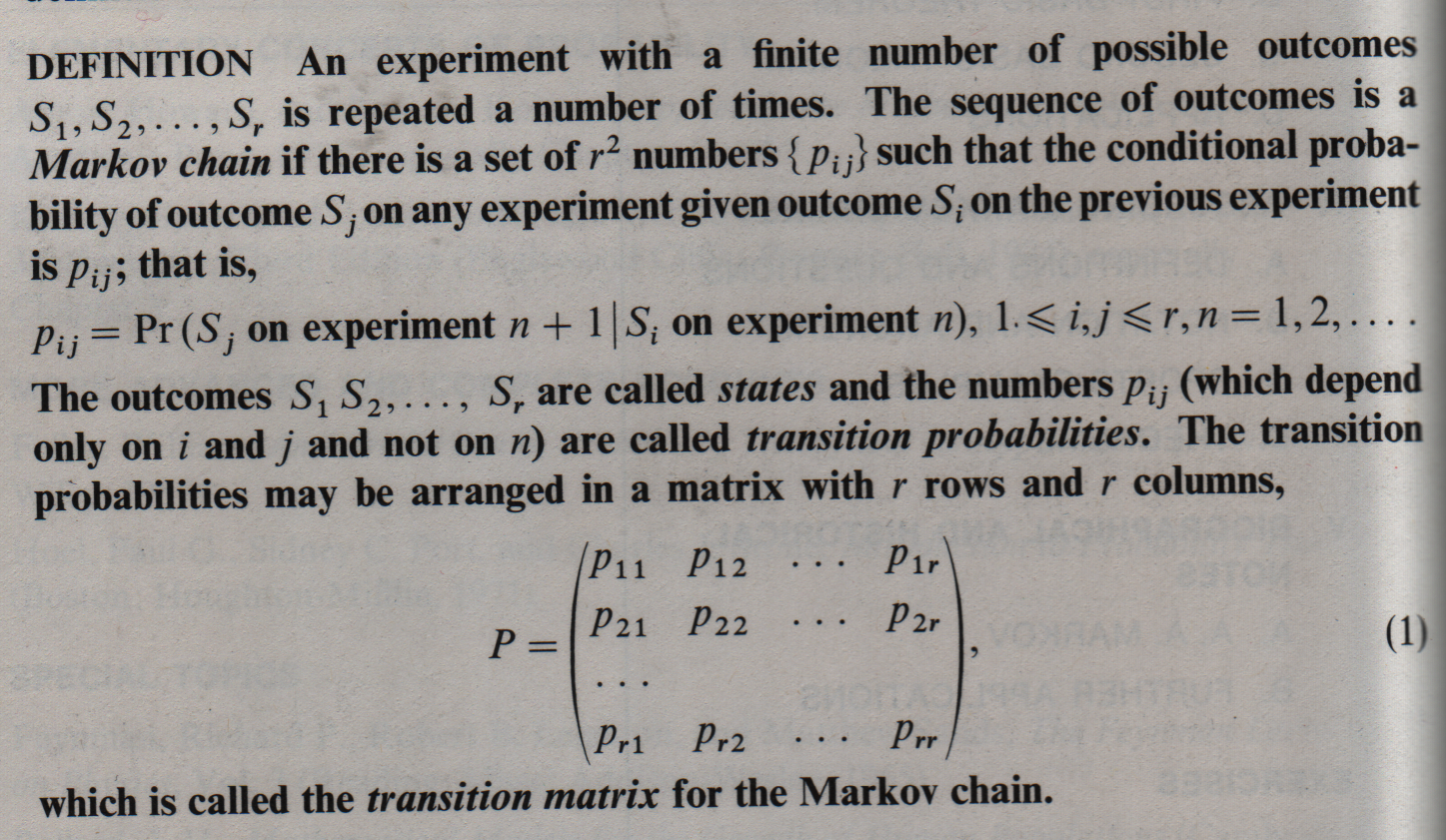- Stereopticon of the day...
- Your rainfall evaluations are due.
- Your in-class midterm revisions are not even looked at yet...sorry...:(
- Friday: I've got three experts coming in Friday to work with individual groups -- so
please attend! I'll be issuing some specific goals on Wednesday.
Olinick: The fundamental principle underlying Markov processes is the independence of the future from the past if the present is known. If the outcome of tomorrow's experiment depends only on today's state (on the previous state), and not on any other days, then it's a Markov process.
Markov processes have only short-term memories. They're forgetful of the past. They only look at what's right in front of their noses.
That's how you can tell that you're dealing with a Markov process!
A Markov chain models a Markov process.
- Introductory Example: Flakes No More and Head, Neck,
and Shoulders
Mike has a very good sense of humor, so the first example I'll give is his, about two shampoos, and their respective market-share.
- The State Diagram
- The Transition Matrix (a "stochastic matrix")
- Simulations: a tree, for calculating probabilities
- Matrix version of the simulations
- At this point in this example, we should have a pretty good
introduction to this definition:

- Convergence to a fixed point vector.
- We can use InsightMaker to generate iterations of Markov chains.
- The State Diagram
- An interesting example of English birthweights (using Mathematica or
InsightMaker
or
in R)
- An
SIR model in R, which I've implemented in my "Rweb" format
(since I wasn't sure that RStudio would have all the necessary
libraries, although we can check that).
Try to implement that pair of SIR models, and reproduce those results, in InsightMaker.